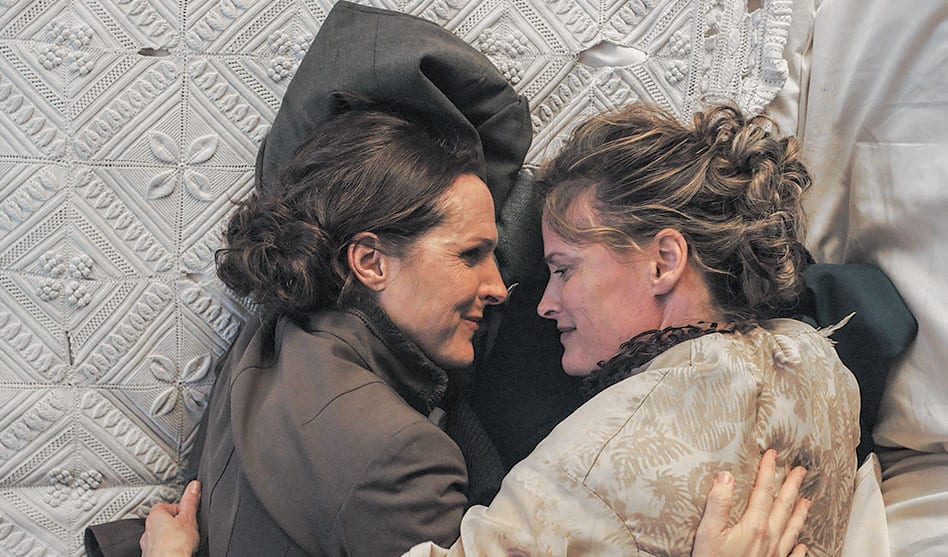‘Wild Nights with Emily’ gives the poet her due
ARNOLD WAYNE JONES | Executive Editor
jones@dallasvoice.com
Emily Dickinson was a master of literary loneliness and isolation. Her poems — all but a handful published only after her death in 1886 — ache with melancholy, preoccupied with death and missed opportunity. Famously reclusive herself, her persona has, for more than a century, conjured images of a buttoned-up Victorian debutante, staring distantly through a lace curtain. She died a spinster.
But just how solitary was she? Modern scholarship has posited that Emily was likely lesbian, as she maintained a close relationship (including surviving correspondence) with her sister-in-law, to whom she dedicated many poems, but even that overlay of biography has been scorched by the specter of sad longing.
That is, until Wild Nights with Emily, which debuted at SXSW in 2018 but hasn’t received a theatrical release until now. The casting of Molly Shannon as Emily suggests the tone that the film seeks to establish: not starchy New Englanders quivering their lower lips in suppression of their emotions, but a comparatively raucous sex comedy. (The opening scene perfectly sets that table.)
Shannon is damn-near-perfect as Emily, in a finely layered performance. She doesn’t mug at all; her performance, while ripe with comedic awareness, is also deeply focused on the soul of its subject. Her vaguely incredulous squints while listening to others prattle on conveys more happening behind her brow than most people when they are talking.
Writer-director Madeleine Olnek threads that needle with a sure hand, evoking the urbane (but also outrageous) wit of Whit Stillman. She seamlessly integrates Dickinson’s actual poetry into the dialogue – not in stodgy and ponderous recitations, but full of vibrancy and blood. Olnek frames the story as a gossipy history recounted by Mabel, an actual figure from Emily’s past, which lends an almost Sex and the City salaciousness to the proceedings… only to cut back to the loving reality that was Dickinson’s true persona. This is not idle revisionism, but a post-modern examination of a queer pioneer whose legacy has been befogged by clouds of heteronormative propriety.
Wild Nights with Emily may be the most woke feminist comedy of recent vintage.













